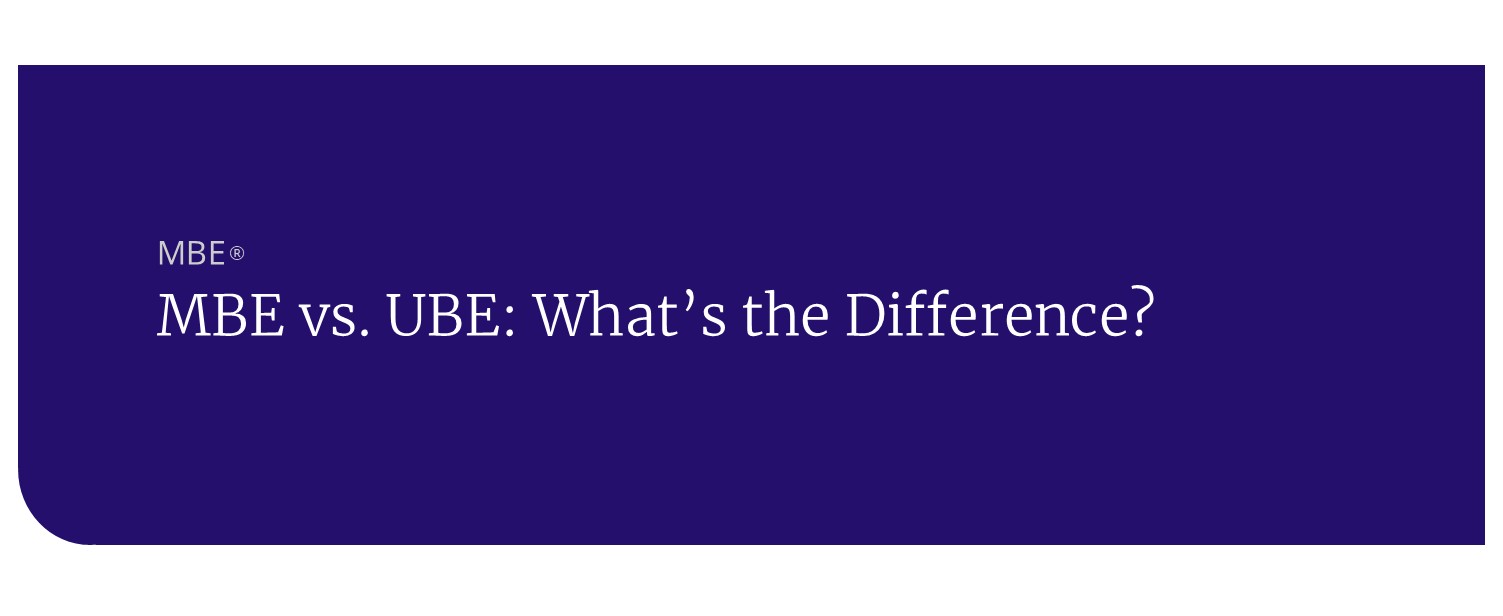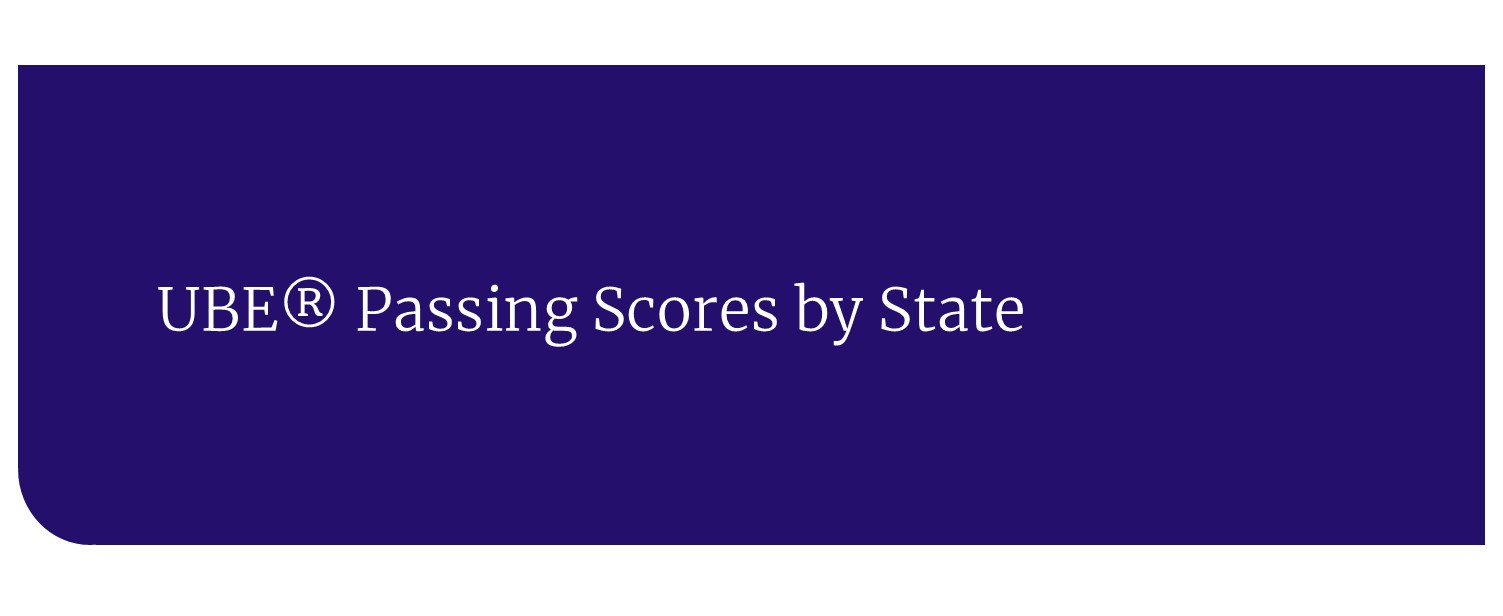What’s a Good MBE® Score?
In most states, a passing score is 131-125 for the MBE (Multistate Bar Exam). Scoring higher than needed on the MBE exam is actually very beneficial, because in most states, any number over passing will be added to MEE score, which will give you a better chance of passing the Bar exam.
[ RELATED: NextGen Bar Exam ]
How is the MBE Scored?
The MBE consists of 200 questions, with 175 questions being scored and 25 being ‘tester questions’ that are not graded. Each scored question is worth one point. Your raw MBE score (the number of correct answers out of 175) is then converted to a scaled score, which ranges from 1-200. This scaled score is adjusted to account for differences in exam difficulty compared to previous administrations.
The details of this scaling process are not released by the NCBE, making it difficult to accurately calculate your scaled score from your raw score. However, a general rule of thumb is to add 10-15 points to the number of questions you answered correctly to approximate your scaled score.
The MBE represents 50% of your overall score in Uniform Bar Examination (UBE) jurisdictions and 40-50% in non-UBE jurisdictions. For example, in Mississippi and Nevada, the MBE is weighted at 40%, while in Virginia, it makes up 33% of the total score.
- Raw MBE Score: This is the number of correct questions out of 175.
- Scaled MBE Score: This is the number that your raw score converts to after the MEE receives your score. This usually means additional points.
- MBE Percentile: This number will allow you to compare yourself to other test takers. For example, if you’re in the 60th percentile, you scored higher than 60% of the other test takers.
What Topics Are Most Important on the MBE?
The (7) subjects tested on the MBE exam are:
- Civil Procedure
- Constitutional Law
- Contracts
- Criminal Law and Procedure
- Evidence
- Real Property
- Torts
While each topic area has an equal number of scored questions (25), the weight of the MBE itself in the overall Bar exam score varies by jurisdiction.
Historical Mean MBE Scores
The MBE is administered in February and July each year. Below are the most recent MBE scores.
| Exam Adiminstration | MBE Mean Score |
|---|---|
| July 2024 | 141.8 |
| February 2024 | 131.8 |
| July 2023 | 140.5 |
| February 2023 | 131.1 |
| July 2022 | 140.3 |
| February 2022 | 132.6 |
| July 2021 | 140.4 |
| February 2021 | 134 |
How to Improve Your MBE Score
To improve your MBE score, begin by preparing with well-organized outlines of the seven MBE subjects. Focus on understanding and actively memorizing the nuances of the law, using techniques like practice questions and MBE flashcards. Don’t just aim for a general understanding; the MBE tests detailed legal concepts. Practice explaining the law out loud using your outlines, and if you struggle, seek additional resources like lectures or tutoring.
Once you have a solid grasp of the law, prioritize practicing questions. Focus on quality over quantity by methodically dissecting each question. Examine the facts, identify the legal issue and governing rule, and try to arrive at an answer before looking at the choices. Review every answer choice to understand why one is correct and the others are wrong. Aim for 25-30 practice questions daily and review your answers with explanations on the same day. Use multiple sources for practice questions, including NCBE released questions, and constantly review your outlines and personalized rule statements.
Finally, practice in exam-like conditions and monitor your timing to get ready for exam day. Build your stamina for the six-hour exam and take a full 200-question simulated practice exam closer to test day. Focus on learning from your mistakes by analyzing why you answered some questions incorrectly. Use performance monitoring tools if available in your prep materials to identify weaker areas and create practice tests focusing on those topics. By following these steps, you can build a strong foundation, improve your application of the law, and increase your MBE score.
How to Transfer Your MBE Score
Jurisdictions obtain MBE scores directly from the NCBE. You must request your score to receive it, but not all jurisdictions offer this service. To transfer your MBE score follow these three steps:
- Find out if the jurisdiction accepts transferred MBE scores.
- See if your MBE testing jurisdiction authorizes the NCBE to transfer MBE scores.
- Log in to your NCBE Account, submit an MBE Score Transfer Request, and pay the associated fee.
Frequently Asked Questions
Below are commonly asked questions about MBE scoring.
Can You Skip the Tester Questions?
Because there is no way to determine which questions are scored versus which are testers, each question should be treated as equally important when taking the MBE.
Which Jurisdictions Accept Transferred MBE Scores?
Individual MBE scores are accepted by the following jurisdictions:
- Alabama
- Georgia
- Idaho
- Kansas
- Michigan
- Minnesota
- Mississippi
- Missouri
- Northern Mariana Islands
- Palau
- South Dakota
- Virgin Islands
- Virginia
- West Virginia
- Wisconsin
Can You Cancel Your MBE Score?
No, you cannot cancel your MBE score after taking the exam so take your MBE prep seriously.
Ready to Get Started Preparing for the MBE?
Get ready for the Bar exam by making MBE Prep part of your Bar study plan






